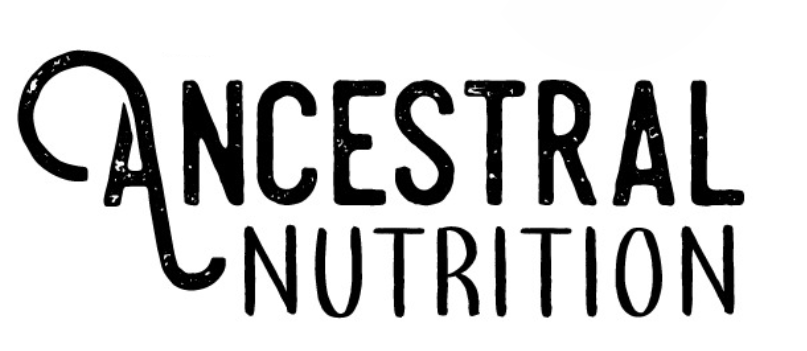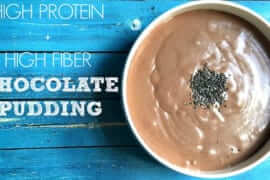First, let me clarify that I don’t mean to be insensitive by using the term “crazy.”
I know how hard a mental disorder can be – whether it’s anxiety, depression, or more serious disorders like psychosis and schizophrenia.
The reality of the situation is that these disorders are on the rise, and while writing about gluten for my upcoming ebook, I couldn’t help but find study after study relating gluten to mental disorders.
The main protein in wheat is gluten.
Gluten contains gliadin and glutenin. While this staple food may seem innocuous, science is just beginning to explore the gut-brain connection, or how the gut affects the brain. From Harvard Medical School,
The brain has a direct effect on the stomach. For example, the very thought of eating can release the stomach’s juices before food gets there. This connection goes both ways. A troubled intestine can send signals to the brain, just as a troubled brain can send signals to the gut. Therefore, a person’s stomach or intestinal distress can be the cause or the product of anxiety, stress, or depression. That’s because the brain and the gastrointestinal (GI) system are intimately connected — so intimately that they should be viewed as one system. (emphasis mine)
Psychosis and schizophrenia specifically have a tie to gliadin. It seems that the immune response of people differs. While some people may react with an attack of the bowel (celiac disease), others respond by displaying symptoms of schizophrenia or other mental disorders.
From Johns Hopkins School of Medicine,
Individuals with recent-onset psychosis and with multi-episode schizophrenia who have increased antibodies to gliadin may share some immunologic features of celiac disease, but their immune response to gliadin differs from that of celiac disease.
Researchers have also found that children born to mothers with high levels of antibodies to gluten have almost double the risk of developing a psychiatric disorder later in life. This is not exclusive to schizophrenia. Research suggests that 22% of those with celiac disease will develop some form of a neurological or psychological disorder; while as many 57% of people with neurological dysfunction test positive for anti-gliadin antibodies. Fifty-seven percent! That ain’t a small percentage.
Gluten has a tie to anxiety.
One study found that CD patients were significantly more likely to have state anxiety when compared to controls, and that after 1 year on a gluten-free diet, there was a significant improvement in state anxiety symptoms
Gluten sensitivity is linked to depression.
Ruuskanen et al. [42] found that an elderly population with gluten sensitivity was more than twice as likely to have depression when compared to the elderly sample without GS. Corvaglia et al. [43] have described improvement in depressive symptoms following a gluten-free diet.
Don’t forget ADD and ADHD!
A few studies have suggested that Attention Deficit Hyperactivity Disorder (ADHD) may be associated with gluten intolerance as well. A study measured ADHD symptoms in CD patients and found that these symptoms are “overrepresented” as compared to the general population. A 6-month gluten-free diet was reported to improved ADHD symptoms and the majority of patients (74%) in this report wanted to continue the gluten-free diet due to significant relief of their symptoms [34]. (emphasis mine)
Seizures (which I had a child – I also ate a lot of wheat) and autism have links to gluten.
Adopting a gluten-free diet has shown a lot of improvement in these disorders. But a gluten-free diet alone will not suffice. It’s ineffective to simply give up gluten and replace it with gluten-free processed foods (bread, cookies, cakes, etc.) It’s necessary to eliminate all inflammatory foods – vegetable oils, refined sugars, GMOs and all processed foods. Replacing these foods with organic, unrefined foods is ideal while adding foods that heal the gut, like bone broth, fermented food, cod liver oil, and probiotics.
Books About Gluten I Highly Recommend:
Sources:
http://www.health.harvard.edu/healthbeat/the-gut-brain-connection
http://www.psychologytoday.com/blog/evolutionary-psychiatry/201103/wheat-and-schizophrenia-0
http://ajp.psychiatryonline.org/article.aspx?articleID=1105557
http://www.ncbi.nlm.nih.gov/pmc/articles/PMC3641836/
http://www.nutritionandmetabolism.com/content/6/1/10
http://www.ncbi.nlm.nih.gov/pubmed/3524724





11 Comments
This is a good article. I have found, in my practice, that once a patient with gluten intolerance gives up gluten for 6 months to a year, they find they no longer need psychiatric medication. Not in all cases, but in many.
That’s amazing; it’s not often I come across a doctor who looks utilizes diet, especially a gluten-free diet. Keep up the great work and thank you for the comment!
Trying to go off gluten made me a crazed lunatic! After a couple weeks I had to start eating “normal” again. My poor family had suffered enough, LOL! I wish there was an easy way to go off and stay off.
If you have the proper resources it’s not difficult.
Michelle, that’s because you’re addicted to the wheat and the sugar that usually goes along with it. Studies have shown that wheat causes a reaction in the brain nearly identical to cocaine. It stimulates serotonin (feel good hormone) release; this is what causes the addiction. It also causes an inflammatory response in the body which can aggravate intestinal issues, arthritis and fibromyalgia, as well as other health issues. It also causes blood sugar to spike and makes the pancreas work overtime.
Giving up wheat is NOT easy, I know. The way I did it was to limit myself to one piece of bread or treat a day for the first couple of weeks. That way I didn’t feel so deprived. Then, after that, taking that out all except 2 days a week. I continued to drop it down until after about a month and a half, I was down to no wheat at all. It has really been a health blessing to get it out of my diet. I have fibromyalgia and I can actually move with little to no pain nowadays. IF I happen to indulge in something with wheat, say at a wedding or some special occasion, I pay for it for about 3 or 4 days; I can barely move. I didn’t realize how crappy I actually felt when I had wheat in my diet. You don’t have to go cold turkey, eliminate it little by little and before you know it, you will feel great and won’t be missing it. You just have to WANT better health more than you want that slice of bread or cake.
I’m wondering how many of the people in this study were actually eating refined grains, and highly processed “wheat” products? Once you refine a grain the way they do to make white bread for instance, what you have left is a wheat like product. Even people who eat commercial “Whole Wheat” bread are actually eating a product that contains 20-30 ingredients, including genetically modified soybean oil. So my question is, is it really the gluten or is it all the other junk they put in bread products? And what about the enrichment process, could that be the culprit? People have been eating wheat forever, my theory would be that its probably the processes even if the crop has evolved. What we think of as food today is nothing like it was even 50 years ago. Interesting but I’m still going to eat my Ezekiel bread 🙂
Well, people have actually only been eating wheat for around 10,000 years – which is pretty recent all things considered. But that’s a valid point. Properly prepared grains aren’t a huge deal.
Could it be that the problem is not necessarily the gluten itself, but the overabundance of exposed gluten in a modern-day Western pre-packaged diet?
White flour is highly processed, and during that process the outer layer of a wheat grain (the bran), and the germ (the innermost layer) are both removed. Consequently, these are the parts that are the most nutrient dense. All that’s left is the endosperm, which is the starchy part in between.
Whole-wheat flour contains the germ and the bran of the wheat kernel. Whole-wheat flour has less gluten than white flour because it contains the additional parts of the kernel that take up space. There is still gluten present in whole wheat flour, but not much because the bran and the germ do not contribute enough to the formation of gluten.
This is why whole wheat breads are often more dense and not as “fluffy” as breads made with white flour. Incidentally, gluten has the ability to trap a lot of air, which could be why some people report feeling very bloated after eating a lot of bread, or other foods made from white four.
It’s no surprise that most of the packaged foods in the typical western diet are made with a LOT of highly processed white flours (as well as refined sugars). Could it be that the overabundance of these flours in everyday foods is what is causing much of the intolerance?
I’m not disputing that some people actually do have to eliminate gluten from their diet, but I’m wondering if others do not have to be so extreme. Perhaps, they can try to eliminate refined flour, and stick with whole grain (truly organic whole grain, and not refined stuff). Eating a diet of whole, natural, minimally processed foods (i.e. not so much pre-packaged foods) could be the key to eliminating many health problems like some of the ones mentioned in this article.
See if that makes a difference first. At least, it did for me.
Just a thought. Good article though.
Definitely – I think properly prepared grains are okay in moderation. I eat sourdough from time to time.
Lol, you’re a fucking retard. And let me clarify l, I do mean to insensitive by using the term “retard.” People have been eating wheat for roughly 15,000 years now. By citing diseases that are on the rise in the last few decades you are refuting your own arguement. Also these diseases are only “on the rise,” because we are better at diagnosing them. Less people slip through the cracks and with modern medicine they live longer as well. And the picture you used for your article isn’t even a picture of wheat. It’s a picture a barely, you drooling fucking troglodyte.
I seem to get really depressed when I eliminate bread for a few days. Then if I eat the bread, the depression goes right away. Why is that? How can I overcome that?
Regards,
Ed C.